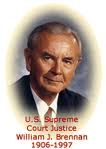This is your morning Open Thread. Pour your favorite beverage and review the past and comment on the future.
Find the past “On This Day in History” here.
Click on images to enlarge.
June 25 is the 176th day of the year (177th in leap years) in the Gregorian calendar. There are 189 days remaining until the end of the year.

On this day in 1876, Native American forces led by Chiefs Crazy Horse and Sitting Bull defeat the U.S. Army troops of Lieutenant Colonel George Armstrong Custer in a bloody battle near southern Montana’s Little Bighorn River.
In 1875, Sitting Bull created the Sun Dance alliance between the Lakota and the Cheyenne, a religious ceremony which celebrates the spiritual rebirth of participants. One had taken place around June 5, 1876, on the Rosebud River in Montana, involving Agency Native Americans who had slipped away from their reservations to join the hostiles. During the event, Sitting Bull reportedly had a vision of “soldiers falling into his camp like grasshoppers from the sky.” At the same time, military officials had a summer campaign underway to force the Lakota and Cheyenne back to their reservations, using infantry and cavalry in a three-pronged approach.
Col. John Gibbon’s column of six companies of the 7th Infantry and four companies of the 2nd Cavalry marched east from Fort Ellis in western Montana on March 30, to patrol the Yellowstone River. Brig. Gen. George Crook’s column of ten companies of the 3rd Cavalry, five of the 2nd Cavalry, two companies of the 4th Infantry, and three companies of the 9th Infantry, moved north from Fort Fetterman in the Wyoming Territory on May 29, marching toward the Powder River area. Brig. Gen. Alfred Terry’s column, including twelve companies of the 7th Cavalry under Lieutenant Colonel George Armstrong Custer’s immediate command, Companies C and G of the 17th U.S. Infantry, and the Gatling gun detachment of the 20th Infantry departed westward from Fort Abraham Lincoln in the Dakota Territory on May 17. They were accompanied by teamsters and packers with 150 wagons and a large contingent of pack mules that reinforced Custer. Companies C, D, and I of the 6th U.S. Infantry, moved along the Yellowstone River from Fort Buford on the Missouri River to set up a supply depot, and joined Terry on May 29 at the mouth of the Powder River.
The coordination and planning began to go awry on June 17, 1876, when Crook’s column was delayed after the Battle of the Rosebud. Surprised and, according to some accounts, astonished by the unusually large numbers of Native Americans in the battle, a defeated Crook was compelled to pull back, halt and regroup. Unaware of Crook’s battle, Gibbon and Terry proceeded, joining forces in early June near the mouth of the Rosebud River. They reviewed Terry’s plan calling for Custer’s regiment to proceed south along the Rosebud, while Terry and Gibbon’s united forces would move in a westerly direction toward the Bighorn and Little Bighorn rivers. As this was the likely location of Indian encampments, all Army elements were to converge around June 26 or 27, attempting to engulf the Native Americans. On June 22, Terry ordered the 7th Cavalry, composed of 31 officers and 566 enlisted men under Custer, to begin a reconnaissance and pursuit along the Rosebud, with the prerogative to “depart” from orders upon seeing “sufficient reason.” Custer had been offered the use of Gatling guns but declined, believing they would slow his command.
While the Terry/Gibbon column was marching toward the mouth of the Little Bighorn, on the evening of June 24, Custer’s scouts arrived at an overlook known as the Crow’s Nest, 14 miles (23 km) east of the Little Bighorn River. At sunrise on June 25, Custer’s scouts reported they could see a massive pony herd and signs of the Native American village roughly 15 miles (24 km) in the distance. After a night’s march, the tired officer sent with the scouts could see neither, and when Custer joined them, he was also unable to make the sighting. Custer’s scouts also spotted the regimental cooking fires that could be seen from 10 miles away, disclosing the regiment’s position.
Custer contemplated a surprise attack against the encampment the following morning of June 26, but he then received a report informing him several hostile Indians had discovered the trail left by his troops. Assuming his presence had been exposed, Custer decided to attack the village without further delay. On the morning of June 25, Custer divided his 12 companies into three battalions in anticipation of the forthcoming engagement. Three companies were placed under the command of Major Marcus Reno (A, G, and M); and three were placed under the command of Capt. Frederick Benteen. Five companies remained under Custer’s immediate command. The 12th, Company B, under Capt. Thomas McDougald, had been assigned to escort the slower pack train carrying provisions and additional ammunition.
Unbeknownst to Custer, the group of Native Americans seen on his trail were actually leaving the encampment on the Big Horn and did not alert the village. Custer’s scouts warned him about the size of the village, with scout Mitch Bouyer reportedly saying, “General, I have been with these Indians for 30 years, and this is the largest village I have ever heard of.” Custer’s overriding concern was that the Native American group would break up and scatter in different directions. The command began its approach to the Native American village at 12 noon and prepared to attack in full daylight.

 On this day in 1957, the U.S. Supreme Court rules that obscenity is not protected by the First Amendment.
On this day in 1957, the U.S. Supreme Court rules that obscenity is not protected by the First Amendment. Welcome to the Stars Hollow Health and Fitness News weekly diary. It will publish on Saturday afternoon and be open for discussion about health related issues including diet, exercise, health and health care issues, as well as, tips on what you can do when there is a medical emergency. Also an opportunity to share and exchange your favorite healthy recipes.
Welcome to the Stars Hollow Health and Fitness News weekly diary. It will publish on Saturday afternoon and be open for discussion about health related issues including diet, exercise, health and health care issues, as well as, tips on what you can do when there is a medical emergency. Also an opportunity to share and exchange your favorite healthy recipes. 

 On this day in 1944,
On this day in 1944,
Recent Comments